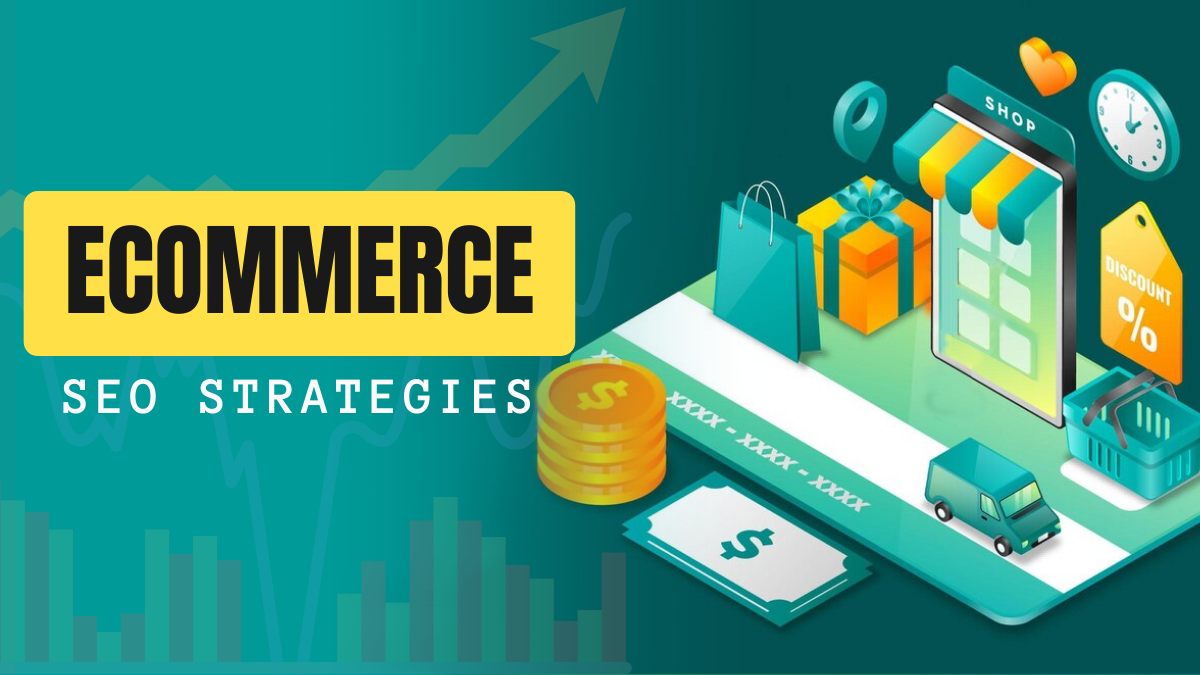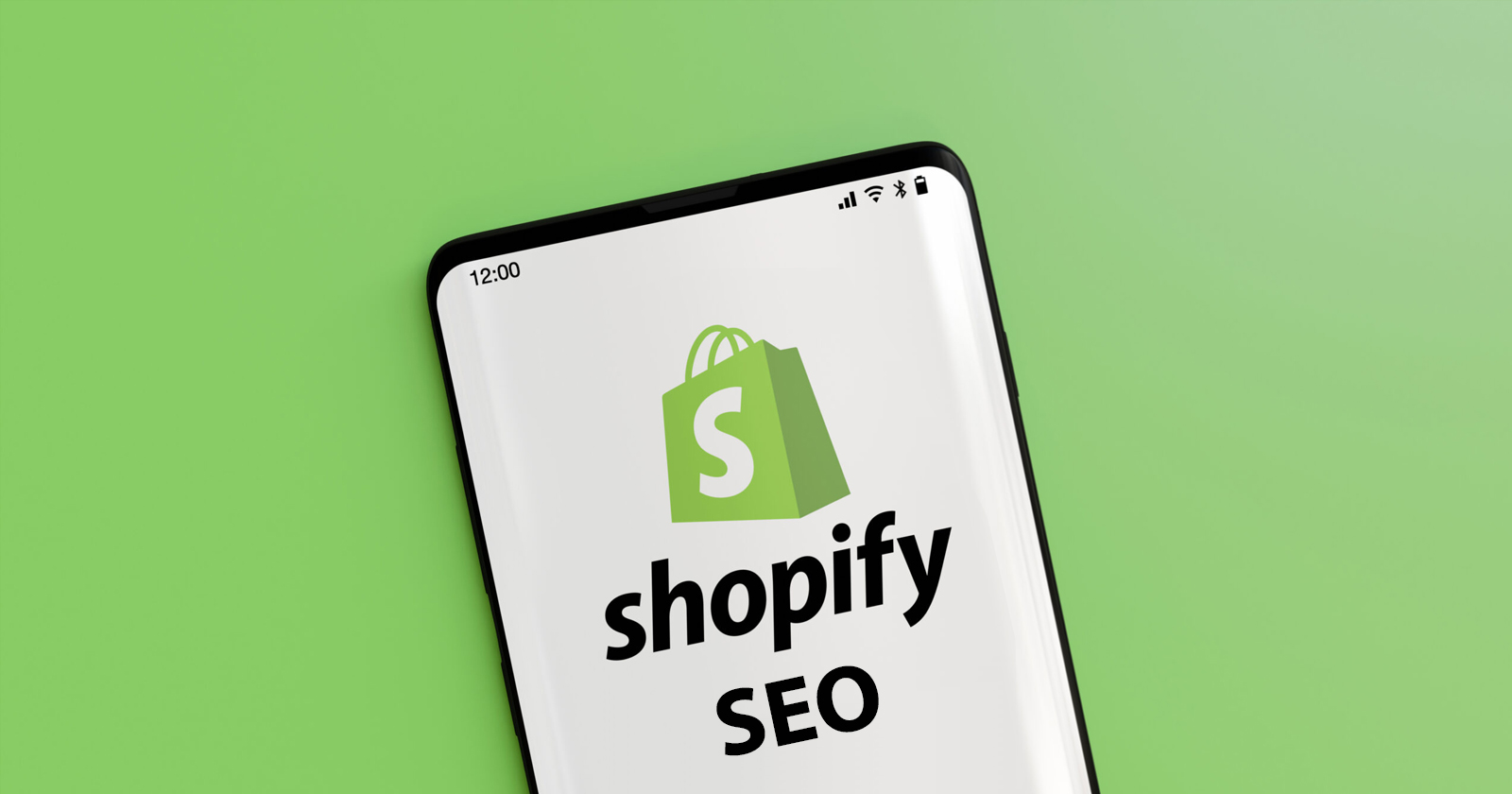In the fast-moving world of online business, it’s really important to learn about ecommerce SEO. It helps to bring more people to your website and make more sales. You have to learn ecommerce SEO strategies for making your product listings better, finding the right keywords, organizing your website, and getting good backlinks.
Businesses can make it easy for customers to shop online by paying attention to how their website works and making it a good experience for the customer. You have to understand the importance of keeping up to date with the always changing SEO environment, making sure that your online store stays flexible and competitive.
This post talks about important ecommerce SEO strategies to help online stores do better in search engines than their competitors and has all the best ways to improve your online business. If you’re a marketer with experience or just starting out in online sales, this post can help you improve your online presence in a steady way.
Understanding a Keyword
A keyword is simply a search term. This concept also applies to eCommerce SEO. A keyword can be any word or phrase that you enter into a search engine. It can be a single word, a combination of words, a question, or anything else.
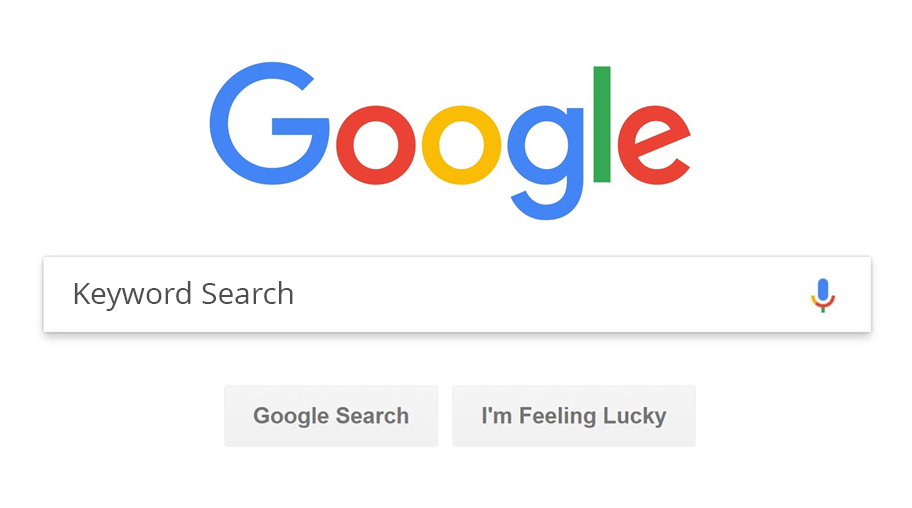
eCommerce product pages and category pages typically employ distinct keywords. Various types of online stores or marketplaces often employ different search methods. Businesses that cater to other businesses frequently utilize product codes to manage their inventory.
Put yourself in your customer’s shoes and think about how they search for things when looking for new keywords. Keywords can sometimes be a whole phrase or several words put together, and they are called long-tail keywords.
Long-tail keywords are easier to compete for than shorter keywords. They are good for eCommerce sites that don’t have a strong online presence or want to rank in popular search results.
Focusing on specific keywords can help improve a website’s search engine ranking, especially for online stores. Content marketing strategies favor using long-tail keywords. These are specific keywords that relate to your products and are great for content marketing.
- Google Search Console and Google Analytics can give you details about how often your website shows up in search results, how many times people click on your website from search results, and what words or phrases your online store is recognized for. It’s really important for webmasters to have a Google Search Console account. It helps them see how Google sees their online stores
- Professional SEO software, separate tools, and natural ranking trackers can easily show you what keywords any website ranks for on Google. This is a good way to start finding important, relevant search terms to build on
Ecommerce SEO experts have a lot of tools that gather information about all the words people search for. Google and other search engines give you really useful information about any word you can think of, like:
- The number of times people search for something each month on average
- The normal cost to click on that keyword in a paid ad
- How hard is it to rank on the first page for that keyword?
The first thing to do in any SEO campaign is to make a list of relevant keywords for your website that you want to rank for. Where would you like your website to appear when people search on the internet?
SEO’s goal is to make your website rank better in search engines. You should know which keywords you want to rank higher for. Choose a list of a few hundred words to help your website show up higher in search results. Congratulations, you’ve made your first keyword list.
Choose one main keyword and a few extra keywords for your top 50-100 pages, including blog posts, product pages, and category pages. The most important pages on ecommerce websites are the product and category pages. It is essential to have the right keywords in mind for these pages.
The Google Keyword Planner tool gives you information about keywords. The information from it is used by many SEO tools through an API to help with search engine optimization. These tools make it easy for you to do research on a user-friendly platform.
With professional SEO software, you can analyze the keyword rankings of websites on the first page of Google. This helps you find more opportunities from your initial keyword research. With many different types of pages for products and categories, it’s simple to gather lots of important words for an online store.
Taking your keyword data and putting it into spreadsheets to make a list is a good way to figure out which keywords to focus on to improve your search engine rankings. Optimizing your ecommerce website for search engines needs constant studying and checking to make sure your keywords are ranking well and can be found easily.
Your list of keywords will help with other ways to improve your website’s search engine ranking, such as how the website is organized, how products and categories are named, and how data is added to the website.
Once you decide on the words you want your online store to show up for in search results, you can figure out how difficult it will be for your pages to appear in those Google searches. Keyword difficulty is a number that shows how hard it is to rank for a certain keyword. You can use CPC for paid ads to help figure this out.
Knowing how many other websites are competing for the same keyword is important when figuring out how much money and effort to spend on improving your website’s search ranking for that keyword.
Keyword Research
It’s really important to know all the different ways that new customers might search to find your store. Your first list of words is the base that you will use to start your SEO plan. You will always be looking for new words to use.
It’s a continuous process, especially when new products and pages are added to your store. You may need to do some new research for a new page because what people are looking for on Google keeps changing. Google Keyword Planner and other tools give ecommerce SEO professionals all the keyword information they need.
Each word you search for has a hidden meaning called search intent. What do people usually want when they type a word into a search engine? Are they trying to find a website to buy things? Google uses Ai algorithms to figure out what people are looking for when they search for something.
Search Intent
Search intent is the reason why someone is looking for information or the goal they want to achieve when they search for something. Some things to think about are, is the person searching for:
- Product pages?
- Article or guide?
- Category page?
Consider what kind of information someone would be looking for if they search for the term “x”. Then, search for the term on Google to see what results come up. If you want your product page to show up in Google search results, you need to understand what people are looking for and use the right keywords on your website.
To find the best keywords for ecommerce websites, you should focus on finding keywords that show people are looking to buy something. Finding the best keywords and specific long phrases that people use to shop online is really important for creating a successful online store’s search engine optimization plan.
Simply put, try to find specific reasons why the person is interested in buying a product based on the keywords they use. If you don’t do this, you might get people coming to your website who don’t actually buy anything.
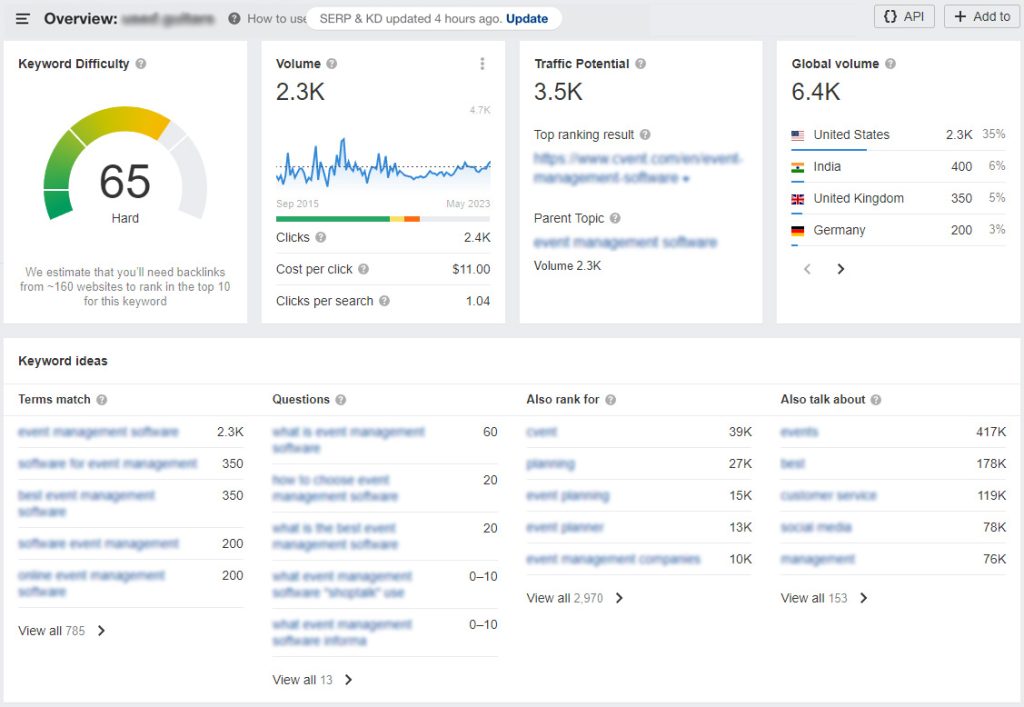
There are lots of signs that a keyword shows someone wants to buy something online.
- Product SKUs: These are codes that help identify a specific product. If someone is searching for a product SKU, it usually means they want to buy that product. Unless they add a word like “repair” to the search, which means they might be looking for a way to fix the product instead.
- Dimensions: If someone is looking for a “case of nail polish”, they probably want to buy nail polish and not read a blog article.
- Product Names: Names without fancy packaging and branding can be good or bad, but are worth focusing on for online shops. Someone looking for a “AirPods” might want to buy one, or they might just want to read the Wikipedia page about AirPods.
You can organize and filter your keyword data to quickly find the keywords related to online shopping. Then, you can put them into a spreadsheet and narrow down the list to focus on improving them for your SEO campaign.
Keyword Research Tools
Niche Keyword Tools
Today’s ecommerce SEO tools help with finding the right words to use on a website. It’s easier than before, but it’s still a bit complicated. With many tools to choose from, it is easy to feel overwhelmed by all the keywords.
Keyword Selection
- Search Volume
- Commercial Intent
- Relevancy
- Competition
- Unique Potential
- CPC Difficulty
- Long tail Vs Short tail
On-Page Optimization
On-page optimization means making changes to your web pages, like the title, description, and headings, to try to make them show up higher in search results when people look for specific words.
Many people start by making a list of keywords to use on their website. The list can have as few as ten or as many as a few hundred words. Depending on how much SEO work you want to do, it might be worth it or it might not.
Before optimizing a web page, you should have a main keyword in mind, as well as other related keywords and terms that are often associated with your main keyword. These will help you optimize the web page for search engines.
Using these words in a smart way will make your search results better. Your title, meta description, and URL will appear in search results, so it’s important to make them appealing and easy to find.
Ecommerce Qualifiers
Using words like “buy” and “for sale” in your keyword research and on your website can help you reach more people and give Google better information to understand. If you make a list of important keywords for your online store, be sure to include main and secondary keywords for all of your most important pages.
Your main page, sections, and item pages are very important on a shopping website. Blogs are important for online stores, and it’s a good idea to do your own research to find the best keywords for the content you want to create.
For new people, doing keyword research might seem hard, but with tools like Ahrefs and Semrush, much of the work is done for you. Let’s look at a few simple examples of how to start researching keywords for an online store, including how to improve product and category pages, as well as your homepage.
Structure
No matter if you’re optimizing a product page or a category page, you’ll need to use the same elements for on-page optimization, as below:
- Optimizing the title tag is very important for the main page, category pages, and product pages
- Meta descriptions
- Only one H1 on each page. The H1s and title tags need to be used together to improve each page’s SEO
- Other tags like H2, H3, H4, and so on can be used as much as you want. The smaller the number, the more Google will notice your header. So, besides H1s, H2s are the most important for SEO. Ensure that the title tag, headers, and H2s include your keywords
- Structured Data
- Copy and content for web pages
- Add detailed and keyword-rich descriptions to your images, use keywords in the image file names, and reduce the file sizes for the web
Increase Rankings by Using Unique Product Descriptions
A simple but important ecommerce SEO strategy is to write original product descriptions that make your brand stronger, interest your customers, and inform them. This will help your online store stand out from others in a way that is good for both search engines and your customers.

Good product description is very important if you are selling items that are also sold on many other online stores. These stores often just copy and paste the manufacturer’s description, so having a unique and detailed description can help your product stand out.
If you sell products that other people also sell, or if you’re the only one selling them, writing interesting and special descriptions for your products that include the words your customers search for can help your products show up higher in online search results. If done well, it will do this while also making your conversion rate better at the same time.
Also Read: Get Targeted Traffic From Long Tail Keywords
Use Long-Tail Keyword Variations
Content is still very important for ecommerce SEO. For the best way to help people find your online store, your blog posts should use longer, more specific keywords related to the products and categories you sell.
These should include reviews of products, articles about how to do things, and so on. If you sell kitchen equipment, you should write about food recipes, healthy diets, how to choose the right equipment, and other related topics. Use links inside your website so that these resources can make your product pages better.
Optimize Store Navigation
Many ecommerce stores don’t pay enough attention to making sure customers have a good experience. Make a website that’s easy to use, especially on mobile phones. Make it easy for customers to go from the home page to the checkout.
This will only help you make more sales and be easier to find on the internet. Google sees if people leave the search engine and go back after they visit your site. It’s important to have a website that is easy to use and navigate for this reason.
If your website comes up on Google search results, but people keep going back to Google to look for a different website, then Google will think your website is not very good. If you want to improve your ecommerce website’s SEO, try to lower the number of people who leave your site right away.
Do Internal Linking
Internal linking is often thought to be old-fashioned, but it still works really well. Make sure to add helpful links in your website content that people will find useful, not just for search engines, and your website will benefit. When you add links to other pages on your website, it helps Google understand your website and content better.
Just don’t add too many links or ones that don’t make sense. When you add links to your website, use words that include your main keywords. Make sure these words are like the keywords in the title of the page you are linking to.
Structured Data
Have you ever noticed that some product pages show star ratings in the search results? This happens when the website owners use structured data on their pages. This is a good way to improve the click-through rate for online shopping websites.

Structured data is special computer code that helps search engines understand what is on a web page better. The information you see on a webpage is shown to you, but the way the different parts of the page are organized is done in the background of the webpage.
Structured data means adding special markers to certain parts of a web page so that search engines can understand and focus on that information more. You should know about schema.org and JSON-LD for structured data.
JSON-LD is a way to add schema.org information to a website by using JavaScript in the tag instead of marking up each individual element on the page. Structured data is a good way to help search engines understand the information on your website.
Google has a tool that tests the structured data on your website. You just have to enter your website’s link or code, and Google will check if there are any mistakes or problems with the information.
Conversion Rate Optimization
By using data and testing out different things, like videos of people using your website, you can carefully work on making more people buy your products or use your services. CRO is a simple way to increase the amount of products you sell online.
Making small changes like altering the text and color of buttons can help, but real conversion rate optimization goes beyond that and needs a professional with good analysis skills.
Create Product Videos
Before, we talked about how to write interesting and original descriptions for products. Adding videos to product pages is a good way to keep people interested, especially if they are your own unique videos and not taken from someone else.
Don’t forget about your website’s speed and technical optimization. Make sure your videos don’t slow down your product pages. You can make sure that all the important parts of the page show up before the video starts so that your users don’t have to wait for the video to load.
You can decide if you want to put your videos on your website or to use YouTube videos. When you put YouTube videos on your website, you can use YouTube to advertise your products. But you need to spend money to make good videos.
Technical SEO
Good technical SEO is essential for any website, but it’s even more important for ecommerce sites. First, a typical online store has many products and categories, so using advanced tactics like this takes a lot of time, is complex, and needs skilled web developers who may cost a lot.
In simpler terms, ecommerce websites usually have a lot of pages that are created on the spot, so there might be more technical problems to deal with. However, many large online stores often ignore these technical aspects of SEO.
An online store’s backlinks mostly lead to a few main pages like the homepage and popular products. Other pages may not have backlinks and not many people know about them. In these situations, improving your technical SEO can help you beat your competition in search engine rankings.
To keep your website working well, check the technical stuff every month, or more often if you update your site a lot. If new features or more types of pages are often added, you will have to do this process more often.
SEO Audit Tools
- Semrush
- Screaming Frog SEO Spider
- Ahrefs
Screaming Frog is a tool that acts like a search engine bot to check how your website is being crawled. After searching your website, Screaming Frog puts this information into an easy-to-use display.
However, like other tools, it depends more on what the users know for information, while Ahrefs and Semrush have software that can check websites and give suggestions based on what it finds.
Common Problems in Technical SEO
- Too many web pages: Remove unimportant pages that are watering down your website’s authority. If a webpage doesn’t get many visitors, you should think about taking it down and redirecting people to a better page. This can also make the website load slower.
- Duplicate content: Copying content is not good for your website’s search engine ranking. It can make it harder for your ecommerce site to show up in search results. If you use the same content on many pages, Google might think you are spamming. Prevent duplicate pages from being found on the internet by using a robots.txt file or adding canonical tags to similar pages.
- Thin content: Content that is not very detailed or informative is a common problem for online stores, just like having the same content in multiple places. It can be hard to write special, interesting, and meaningful words for lots of product pages. But if you do it, your online store will stand out and more people will buy things from you. Many online stores skip this step and use brief product descriptions provided by the manufacturer. This leads to two problems: the content is too thin and there are copies of it.
- Site speed: It is becoming more important for Google. The faster your website loads, the better it is for users and for getting traffic from search engines. You can use tools like GTMetrix or Google’s Page Speed Insights to see how fast your website is and how to make it faster. Always try to make your website load faster, and both your users and search engines will appreciate it.
Also Read: eCommerce Technical SEO Audit: A Step-by-Step Guide
Website Development
When starting an online store, it’s important to consider how it can grow in the future. If your website is starting with just a few products but you want to add hundreds or thousands in the future, you need to plan for this so your website can keep up as it grows.
Deciding how the website is organized can have a big impact on how well it shows up in online searches for products to buy. The ability for your online store to handle a lot of customers depends on the ecommerce platform you choose, how you set up your website’s database and ERP, and the hosting solution you pick.
One important aim for any online store should be to make it easy for customers to go from the homepage to paying for their purchases. In theory, most people should be able to find what they want on your website in just two or three clicks from the homepage.
Design the way users move through the website and try to make it so they don’t have to click too many times to find what they want to buy. Improve the category pages so that it’s easy for people to find and look through products.
You also need to make it easier and faster for the user to buy something once they have put it in their shopping cart. Just like physical stores help customers buy things easily, your online store should do the same.
Besides organizing your website in a smart way that’s easy for people to use, you also have to make sure it’s easy for search engines to understand and navigate. This means creating a good web address that is easy for search engines and people to understand and looks nice to the eye.
Different websites will have different ways of organizing their content and designing their features, depending on what they need to do. Businesses need to get help from an online shopping expert before deciding how to set up their website.
For Website URL
- Be brief
- Don’t use too many keywords, and don’t repeat things too many times
- Use descriptive and relevant keywords in the URL if it is appropriate
Good URL Structure for Category Pages
- https://www.website.com/category/fridge/black/double-door
- https://www.website.com/c/fridge/black-double-door
Bad URL Structure for Category Pages
- https://www.website.com/category/fridge/black-fridge
- https://www.website.com/category/fridge/double-door/black/fridge
- https://www.website.com/category/f/d-d/b/f
Good URL Structure for Products
- https://www.website.com/products/AC/inverter/5-star
- https://www.website.com/p/AC/inverter/5-star-inverter
Bad URL Structure for Products
- https://www.website.com/products/AC/product/inverter/5-star
- https://www.website.com/p/AC/i/5-star
- https://www.website.com/cart/inverterAC10
Find Similar SERP Pages
Study how the best websites are making the web addresses for their category and product pages. Then, try to do the same thing but even better.
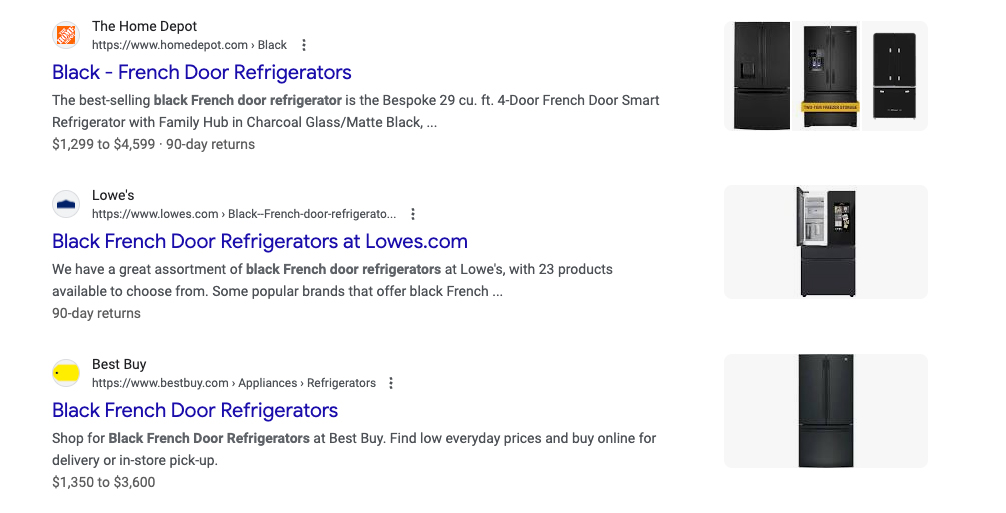
Keep in mind that the top websites use different ways to organize their web addresses, but they are all planned in a strategic way to show what the page is about. This helps search engines understand the pages better.
Create Custom Features
When you create your ecommerce website, it’s important to decide what features you want the website to have. Consider all the special features on an Amazon product page: similar products, customer reviews, and items that other customers also bought.
All of these features are good for an online store, and Amazon is a good company to learn from for this. However, if you want your online store to have strong features, you usually have to create it from the beginning to make it as successful as it can be.
The custom development work should focus on making the website fast and well-organized to improve SEO. This will help everything work together smoothly and make the site load quickly.
For instance, a lot of online stores that use WooCommerce on WordPress use many different plugins to make things work. This can lead to a lot of problems and issues with how the website shows up in search results. Since these plugins are made by different people, they don’t always fit well together.
When a plugin is updated, it could cause problems for other parts of your website, and you might not know there’s a problem until your customers start complaining and asking for their money back. This might cost more money if you have to hire an eCommerce development company to update plugins and fix technical SEO problems that can harm your search results.
When you build an online store, make sure to think about all the things it needs to do and find a company that can create the website exactly the way you want it. Design your website so that it’s easy to add new features later on.
Homepage to Checkout Navigation
When you create your website, make sure it’s easy for customers to find what they want and buy it. You need to make a website that makes it easier for people to buy things, so more people will buy them.
If you have old data, tests, conversion rate optimization data, use it to make a website that turns as many people browsing into buyers as you can. Do the following to optimize your site navigation:
- Reduce the number of times users need to click to go from the homepage to the product page and then to the checkout
- Add the item to the shopping cart on the product page
- Provide quick and simple checkout options for fast shoppers
- Do not need to log in or make an account to buy something
Mobile Optimization
Making your website work well on phones has been really important since the last decade. If you have an online store, focus on making it work well on mobile phones more than on computers. This means building a website that works well on different devices.
For many years, Google has been saying that they are changing to the mobile-first index, which will have a big effect on ecommerce SEO plans. If Google thinks mobile is important, your online store should focus on it too.
This means that when Google decides where to put your website in their list, they look at your mobile site more than your desktop site. Because most people who shop online use their mobile phones to start or complete their purchases, it’s important to focus on making the mobile shopping experience good.
Mobile usability and how fast a website loads are just as important, if not more important, than how easy it is to use and how fast it loads on a computer. A helpful first step is to use Google’s Mobile-Friendly tester tool to check your website.
Earning and Building Links
Search engines consider links as a very important factor to decide how trustworthy your website is and how high it should rank for eCommerce. If you don’t know much about building links, you can learn from Moz.com’s beginner’s guide. It’s a great place to start.
There are a lot of ways to make connections with other websites. In the past, just adding your website to directories was good enough to stand out from others in SEO. Currently, Google doesn’t care much about links from low-quality directories.
Instead, try to get other websites to put links to your online store, rather than just making links yourself. Add interesting content on your website that makes people want to share it with others. Here are some ways to get other websites to link to your online store. These methods will help you get more high-quality and important backlinks.
- Content-based: Create informative and engaging content like an infographic, guide, or blog post about a specific topic.
- Guest blogging: Writing for someone else’s blog is still a good way to get links, especially if the content is good. It may not work as well as it used to, but it’s still a good method.
- Ego bait: Create a post that makes someone with power feel important, so they’ll share it with their colleagues and it will lead to more people linking to it.
- Broken link building: It is when you find broken links to other websites using a tool like Ahrefs. You then contact the website owners and ask them to replace the broken link with a link to your website. If you don’t already have a resource, you might need to make a new page for it on your website. Ensure that your content is better than the original link.
- Reclaim links: Find and fix any broken links on your website. Use 301 redirects to fix the broken links on a page that already exists. This will help keep the link strong. It’s a simple but effective way to build links for SEO.
Effectively Handle Out-of-Stock Products
Don’t just remove a product (or category) from your website. There are many ways to think about it, but none of them include just getting rid of the old page. Here are some choices to think about, depending on the situation:
- Keep the product page on the website and in the category, but add a message saying the product is no longer available on the product page. Add links to related products in the existing product pages’ descriptions
- Remove the old product page and make it go to the new page that is most related to it. This could be a similar product page, a category page, or a blog post about an old product. Use the best page to replace the old URL
Also Read: Product Page SEO: The Missing Link in Your E-commerce Strategy
Customers Reviews and Engagement
Using structured data to show reviews in search results is good, but if you only have two reviews on your page, it doesn’t look good. Make a reward program to motivate your customers to write reviews. This plan should go beyond just reviews.
You should focus on communicating with your past, present, and future customers as much as you can. In online shopping, it’s really good to have customers who come back to buy again. And when online shoppers are given incentives, they like it and are more likely to buy.
Speed Up Your Ecommerce Store
A fast website is becoming more and more important in Google’s ranking system. Having a fast website will greatly improve your rankings and give users a better experience. You should think about how fast your website loads because it’s a big part of the user’s experience.
Work to make your website faster than your competitors. You don’t have to be super fast, just faster than others in your industry. Make sure to make your images smaller for your website, or else they could slow it down.
Keep an eye out for CMS systems that might be making product images too big when smaller ones would work just fine. Here are a few tools to check how fast a site loads:
- Google’s PageSpeed Insights (gives you an idea of how fast your website loads from Google’s point of view)
- GTMetrix (gives information about how well a website performs on Google, Bing, and Yahoo)
Wrapping Up
Getting really good at ecommerce SEO is a constantly changing process that needs time, planning, and being able to change when needed. By following the advice in this post, businesses can make themselves more noticeable on the internet, get the right people to visit their website, and turn those visitors into loyal customers.
Important ecommerce SEO strategies like making product pages better, using the right keywords, making the website faster, and getting good quality backlinks are really important for growing the business in a good way. Also, making sure the website works well on mobile phones and is easy for people to use will make shopping easier for customers.
It’s really important to keep up with the newest SEO trends and algorithm changes if you want to stay ahead in the constantly changing online market. By constantly improving and updating your SEO methods, you can make sure your online store stays useful and up-to-date.
FAQs
What are the main factors that help online stores show up in search engines?
The most important factors are using the right keywords, writing good product descriptions, making the website easy to use, making it load quickly, making it work well on mobile devices, and getting good websites to link to yours. Also, using schema markup can help search engines better understand the information about your product.
How can I make my product pages better for search engines?
To make your product pages better for search engines, focus on writing original and detailed product descriptions, using good images with descriptive taglines, adding important keywords naturally, and including customer reviews. Make sure that each product page has a simple web address, a clear title, and a brief description that accurately describes what the page is about.
How do I know if my ecommerce SEO is working well?
You can see how well your eCommerce website is doing by keeping an eye on things like how many people visit your site, where your website ranks for certain words, how many people make a purchase, how many people leave your site without doing anything, and how long people spend on your site. Google Analytics and Google Search Console help you understand how well your website is doing and point out where it can be improved.
How can I use schema markup to improve my ecommerce website’s SEO?
Schema markup helps search engines understand the information on your website better. This can make your website show up with extra features in search results. Use schema markup to give more details about your products, like prices, if they are available, what people think about them, and how good they are.
What does content marketing do for SEO in ecommerce?
Content marketing helps ecommerce websites attract more visitors and connect with potential customers, which is important for improving their search engine rankings. Producing good and useful content like blogs, guides, and videos can help you focus on specific keywords, establish your brand, and give helpful information to your audience.
